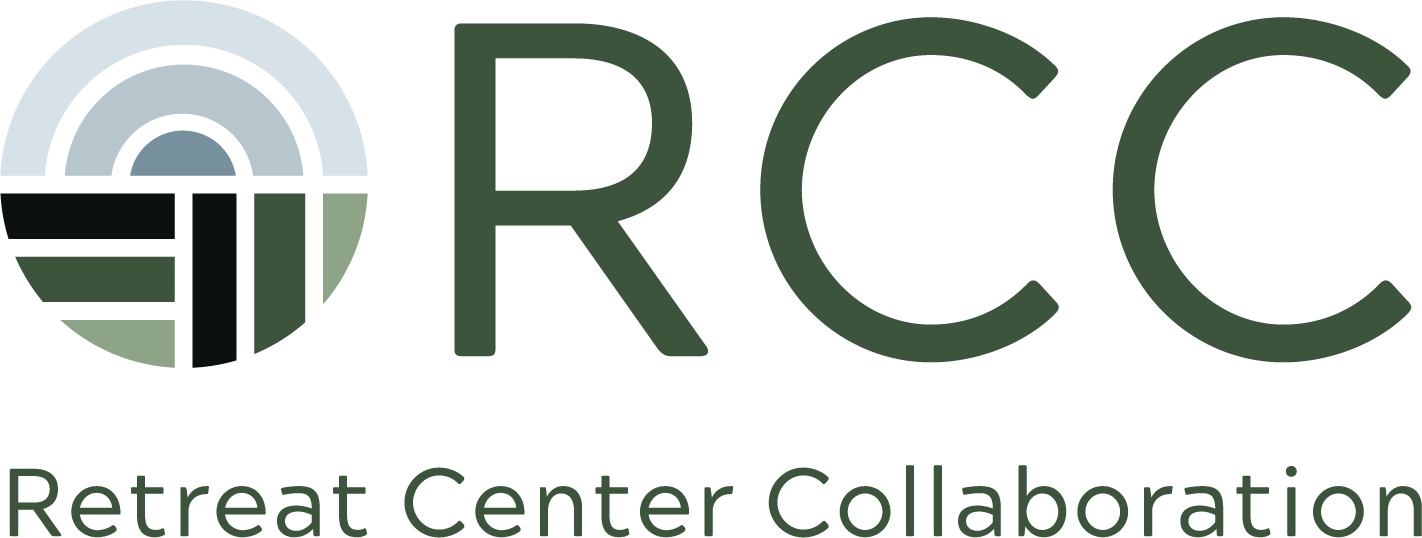Innovative Practices and Your Center
On our community call August 9th, we heard from retreat-adjacent initiatives, folks imagining new centers, and peers who are innovating how they offer retreat.
Below are some highlights.
Deirdre Guthrie, Director of Wellbeing and Joy at Lurie Children’s Hospital
As a medical anthropologist, Deirdre’s been doing wellbeing research and facilitation, exploring interventions for professional caregivers in particular
Nurses are facing exhaustion and two years of burnout. Deirdre’s role is to support nurses during an incredibly challenging time, with a huge worker shortage. Taking all 30 directors on a restorative 2-day reflection retreat this fall
Wellbeing matters, even as tired as people are
Co-regulation can lift the quality of life for a whole floor. How can nurses avoid dysregulation together?
Creating spaces where people can recharge onsite by including plant life, etc. Exploring narrative medicine, mindfulness, mindful movement, etc. People are newly open to this type of work and support
Aras Erekul, Modern Elder Academy
Resources that may be helpful for folks developing services to address healthcare worker burnout:
Jessica Grosmeyer’s new book - weaving spirituality back into workplace cultures
Super effective facilitation method for crowdsourcing wisdom and establishing connections -- whether online or in person. Aras strongly recommends checking out their free workshop https://xchangeapproach.com/
Zachary Schlosser and Corey Cleland, Wild Vessel
Wild Vessel is a (primarily online) education platform and community, currently establishing a cadre of guides who are teaching a wide array of skills. Developing a collaborative teaching community.
Goal is for participants to deepen into a sacred relationship with themselves, their world, and their communities. Creating more opportunities for personal development and spiritual growth that are relevant to pop culture. Programming that is integrated with people’s lives, sacred practice and material skills (embodiment, crafts, etc)
Long-term, Wild Vessel hopes to contribute by developing sacred, resilient communities that also respect and treat their environments as sacred. Hope participants build a sense of belonging, supporting long-term growth and development
Wild Vessel’s relationship with retreat centers: we see a huge opportunity for retreat centers to become resilience hubs in their communities. Supporting spiritual, emotional, and psychological resilience, but also creative development and action that is more materially focused
Alessandra Santos Pye, Chrysalis Institute
Chrysalis Institute is holding space for BIPOC artists to deepen their work.
Tracking progress, telling the story through the Waystation podcast
As a BIPOC founder and facilitator, Alessandra notes that she is subjected to the same suppressive and oppressive systems as program participant.
How do I generate something new in terms of resources, space, facilitation? I don’t have the resources to create the spaces that these artists need. How could these opportunities be generated without contributing to exhaustion and tension of creative folks?
Peter Moore, Breitenbush - a worker-owned cooperative and year-round retreat center
As a virtual-based program, could Chrysalis Institute make common cause with land-based retreat organizations across the country? Perhaps sites like Breitenbush where they could land for a week or a month for an onsite artist-in-residency program?
Here at Breitenbush, we’re looking for connectivity with BIPOC and LGBTQ+ people and organizations. Where we can offer our space and partner with folks who are doing this work.
Dr. Myra Miller, Nature Studies Conservatory
Noticing and highlighting the difficulty for BIPOC people: systemic, limited access to resources, both at the organizational level (at the center), and also for the artist-participant-attendees who need additional support
More ideas for new centers serving BIPOC and artist communities:
Connect with Shelterwood and also Knoll Farm
An idea to draw inspiration from: Djerassi Resident Artists Program
For storytelling and podcasts, StoryCorps could be a free resource to tell the stories of your artists and their evolution
Maureen Connors, Franciscan Center Tampa
We’ve developed Operation Restore, a program for first responders suffering with PTSD
The program has served hundreds of first responders, military, veterans, spouses, and their families, since 2013
The program incorporates counselors, psychiatrists, psychologists, peer-support, and trained professionals who treat post-stress using one-to-one counseling, group processing, education, and a proven scientific technique called EMDR, or eye movement desensitization and reprocessing.
Ben Scott-Brandt, Retreat Center Collaboration
The work of RCC is to continue to support these learning edges for retreat centers in our communities. What work needs to be done so that retreat centers can be safe and brave spaces, and so that BIPOC participants are able to arrive and settle and do their deep work?
